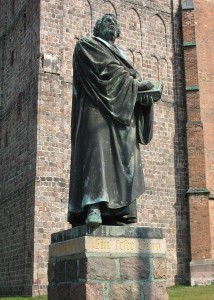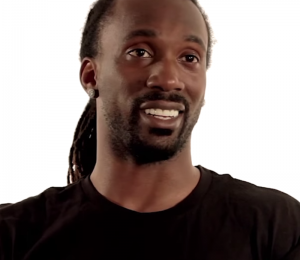Today, nearly 500 years after the Protestant reformation, orthodox Protestants and Catholics are closer to each other than they perhaps have ever been. And this is as it should be. While they still have important differences about the primacy of Rome, the place of Mary, justification by faith, and the structure of the church, it is not uncommon on practical ethics issues for conservative Protestants and Catholics to be working alongside each other in the political trenches – and to view each other as allies in every possible sense of the term.
What has driven them closer together is the need for survival in the face of an aggressive and advancing secularism. Today faithful Christians of all kinds – Protestant, Catholic, and Orthodox – are being urged by their secular counterparts to cast aside their antiquated beliefs about God and families, and instead to embrace new ideas about gender, marriage, human personhood, and God (i.e. God’s non-existence) that are more compatible with ‘contemporary sensibilities.’ They have found solace in each other, across their doctrinal divides, and in spite of their differing liturgical and structural traditions.
Martin Luther Statue, Prenzlau, Doris Antony, Wikimedia Commons
The truth that the conservative Protestants and Catholics have realized is that wherever the secular mindset attacks families, sexuality, and persons, it brings death – the death of the beautiful (i.e. think of the pornography plague), the death of worldviews (viz. what is there to live for when you don’t believe in anything), and the death of families (viz. why have children when it does not matter in the cosmic scheme of things whether you live or not). Slippery slopes often are classified as fallacies, but when it comes to the radical and recent advance of secularism, conservative Protestants and Catholics know that slippery slopes are very real things indeed.
In fact today it is not uncommon for conservative Protestants and Catholics to feel closer faith ties with each other than they do with the liberals in their own traditions. In a day and age in which the powerful Dean of Washington D.C.’s National Cathedral identifies himself as a ‘non-theistic Christian,’ conservative Protestants and Catholics now recognize that they must stick together or else face a rapid degeneration of their fundamental beliefs. The well-known evangelical historian Mark Noll pondered these issues aloud in a book published in 2006, Is the Reformation Over? Based on my field experience in Christian ethics and public life, I am inclined to agree with him – or at the least to say that large parts of the reformation are now over.
To be sure, I do not want in any kind of an inordinate way to downplay the differences that remain today between Protestants and Catholics. Those differences are substantial and real, and I certainly am not saying that conservative Protestants and Catholics ought formally to realign across their belief barriers any time soon. I for one have trouble with some key Catholic doctrines. But, important as the differences are, the differences feel like they matter very little right now in the face of an aggressive and corrosive secular mindset whose end-result is sexual collapse and worldview death. Why debate about whether the Eucharist is the real presence of Christ, or merely a symbol only, when there are major post-Christian forces in our culture that are agitating for the church to redefine God as the ‘benevolent warmth that surrounds us’?
One of the great American clergymen of the late 20th century was Richard John Neuhaus, who crossed the Tiber and converted from Lutheranism to Catholicism in the latter stages of his life. In Death on a Friday Afternoon,Father Neuhaus wrote movingly about how when death comes our Catholic-Protestant doctrinal differences about ‘justification by faith alone’ will melt away: “When I come before the judgment throne, I will plead the promise of God in the shed blood of Jesus Christ. I will not plead any work I have done, although I will thank God that he has enabled me to do some good. I will plead no merits other than the merits of Christ, knowing that the merits of Mary and the saints are all from him; and for their company, their example, and their prayers through my earthly life I will give everlasting thanks. I will not plead that I had faith, for sometimes I was unsure of my faith, and in any event that would be to turn faith into a meritorious work of my own. I will not plead that I held the correct understanding of ‘justification by faith alone,’ although I will thank God that that he led me to know ever more fully the great truth that much misundertood doctrine was intended to protect. Whatever little growth in holiness I have experienced, whatever strength I have received from the company of the saints, whatever understanding I have attained of God and his ways…these and all other gifts I will bring gratefully to the throne. But in seeking entry to that heavenly kingdom, I will, with Dysmas, look to Christ and Christ alone.”
Today, as a committed Protestant I am happy to count numerous Catholic brothers and sisters among my friends, and I am looking forward to the day when we will be together around the Lord’s banquet table in heaven. Like Father Neuhaus, on that day I too will not be counting upon my knowledge of the correct doctrine of justification by faith. Instead I hope to be joining my Catholic brothers and sisters in a simple song:
From earth’s wide bounds, from ocean’s farthest coast,
Through gates of splendor streams the countless host,
Singing to Father, Son, and Holy Ghost,
Alleluia, Alleluia




